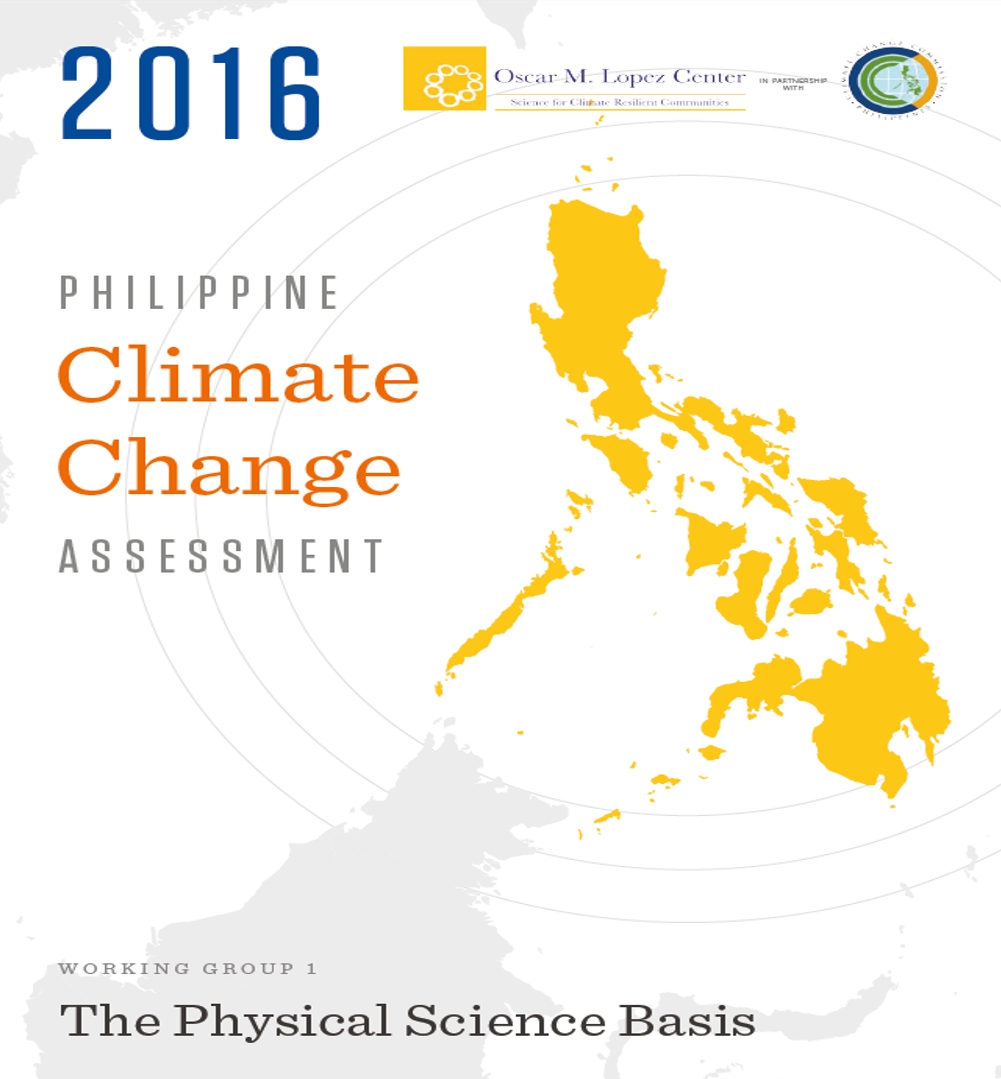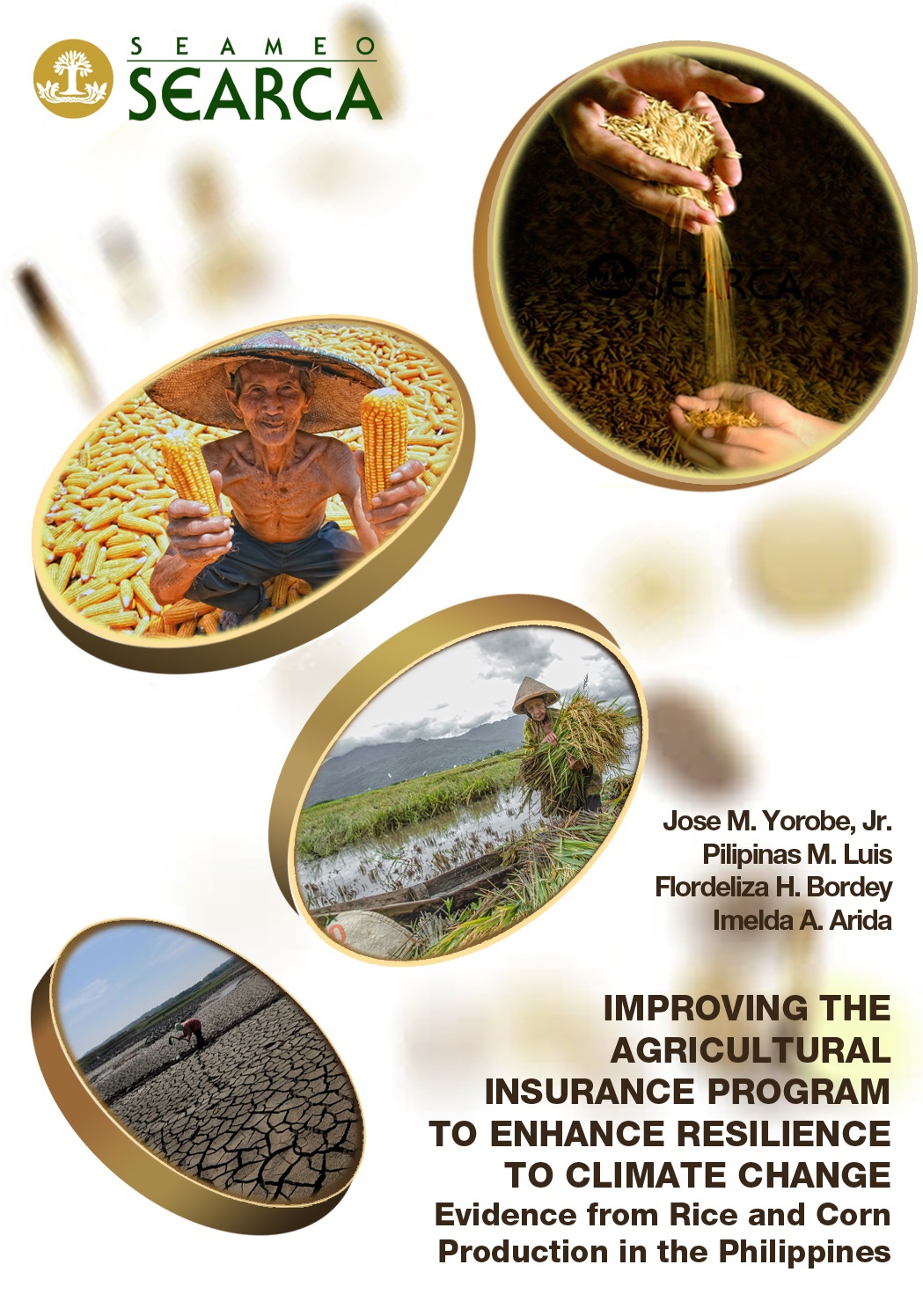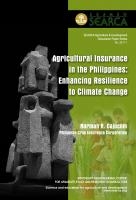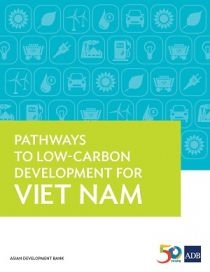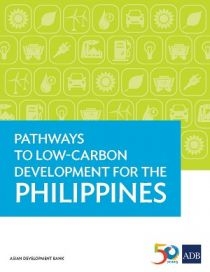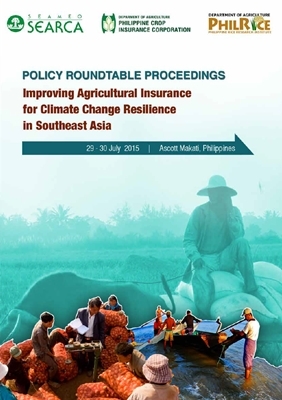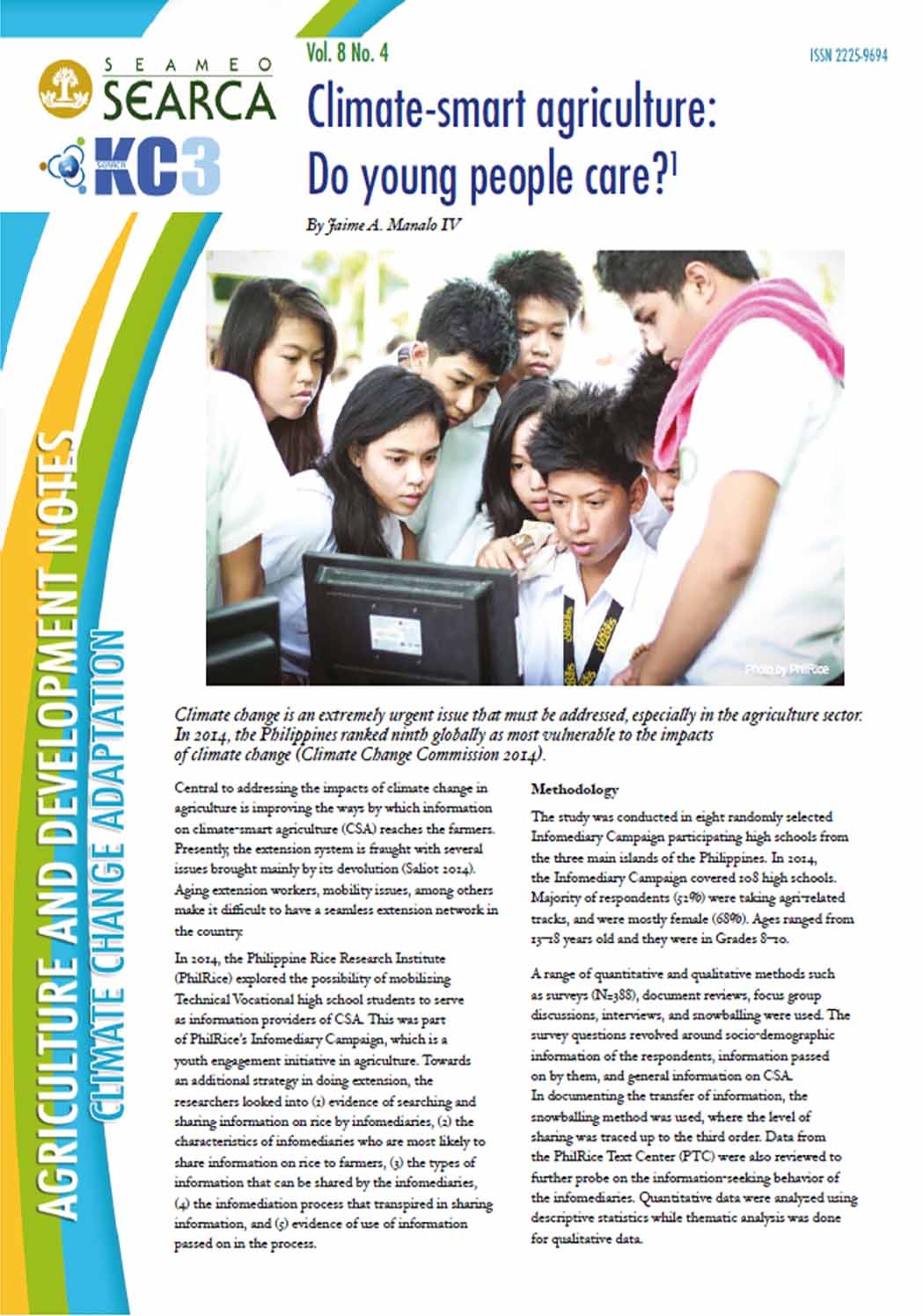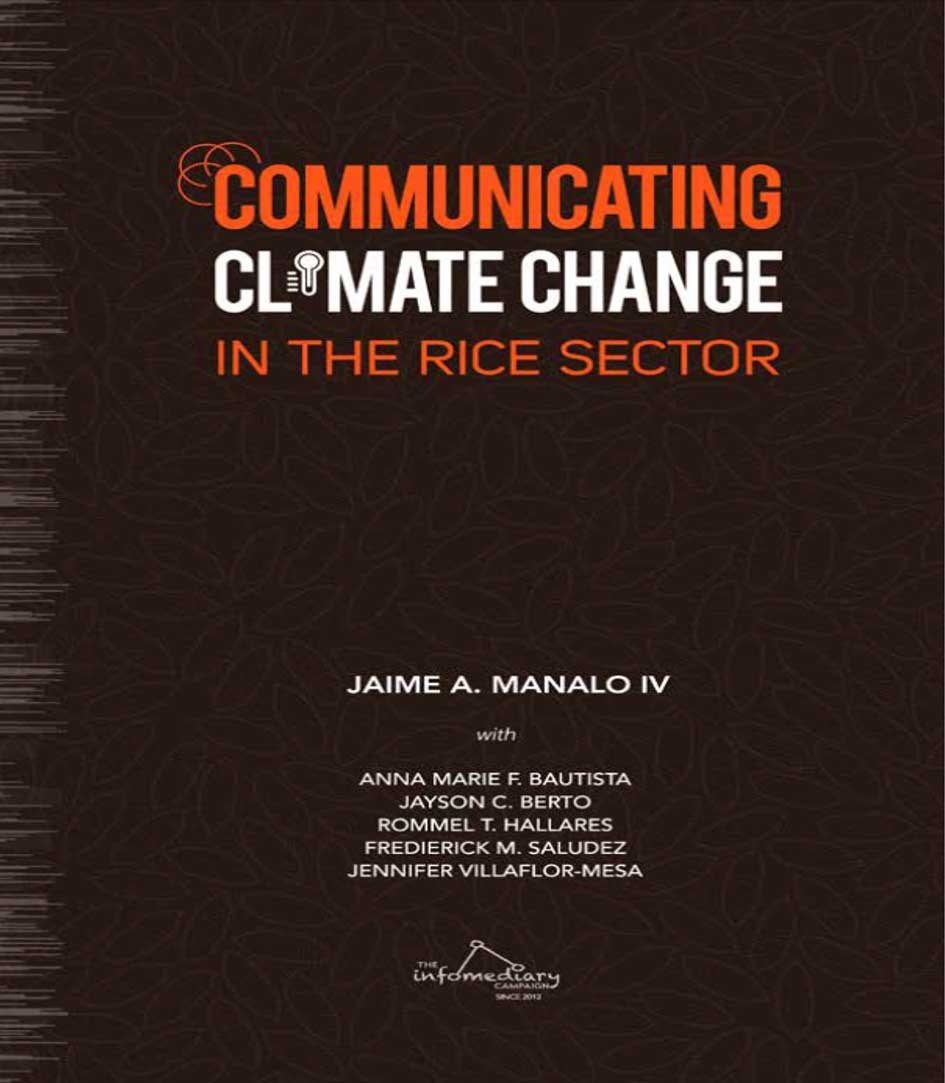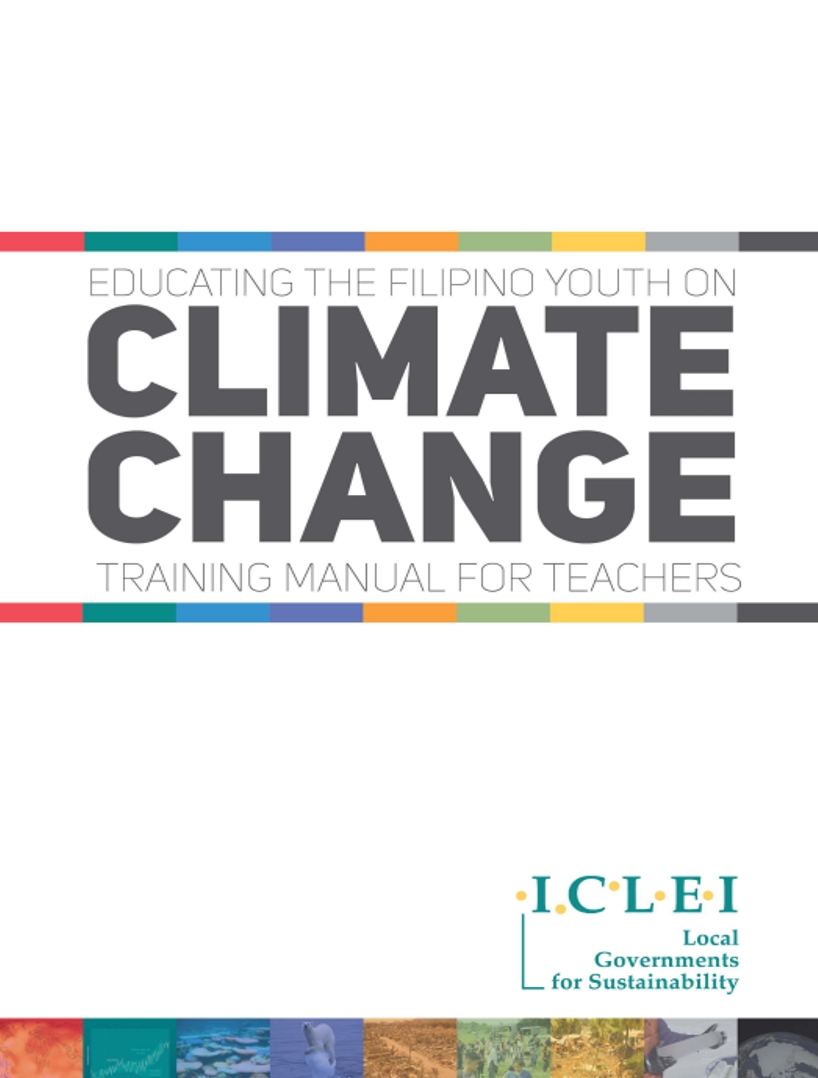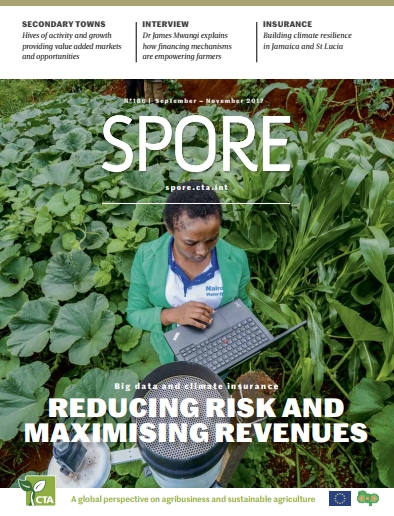Publications
This contains experience notes, adaptation notes, policy briefs, policy papers, technical reports, stories on good practices, and other publications related to climate change adaptation and mitigation in Southeast Asia not just from SEARCA, but also from KC3's partners and other agencies/institutions.
Climate change is one of the most serious threats faced by humanity—a multifaceted issue that will be universally felt. As such, it is critical that we better understand how current and future vulnerabilities and sensitivities will impact the different sectors of our society. A firmer grasp on these issues can serve as a guide for climate-smart and timely interventions that can build and further develop our resilience. In 2017, the Oscar M. Lopez Center (OML) published the Philippine Climate Change…
This study analyzed the factors that influence the adoption of rice and corn insurance and the extent of GAP adoption as a resiliency measure to climate change. Specifically, the study investigated GAP technologies related to pest and disease resilience in rice and corn production, determined the extent of awareness of farmers about these technologies, and analyzed uptake patterns and the determinants of the degree of GAP adoption. The relationship between rice and corn insurance and GAP was also assessed. A probit…
In the Philippines, about 70 percent of the population lives in rural areas and majority are small farmers whose livelihood depends on agriculture. The agriculture sector provides food for the Filipinos and contributes a major portion to export earnings; however, owing to the country’s geographic location, the sector faces various hazards that make agricultural insurance both urgent and indispensable. The Philippines is situated in the Pacific Ring of Fire and along the typhoon belt of the Western North Pacific Basin,…
This study assesses how Viet Nam’s green growth objectives can be achieved through a detailed modeling approach that draws on extensive national stakeholder input to ensure alignment with sector plans and strategies. Viet Nam’s rapid economic growth in recent years has been energy dependent. Viet Nam’s economy could expand by almost 14 times between 2010 and 2050, but the country’s energy system has become more carbon intensive. This study uses a bottom-up model to evaluate 63 measures to reduce greenhouse…
This study assesses how the growth of the Philippines can be made climate-friendly through a detailed modeling approach that draws on extensive national stakeholder input. The Philippines currently has a low level of per capita greenhouse gas emissions. However, emission levels are growing at an increasing rate, with 4% annual growth between 2006 and 2012. The country’s energy system is becoming more carbon intensive to satisfy escalating energy demand caused by strong economic growth. This study assesses how the Philippines…
The Policy Roundtable was jointly organized by the Southeast Asian Regional Center for Graduate Study and Research in Agriculture (SEARCA), the Philippine Rice Research Institute of the Department of Agriculture, and the Philippine Crop Insurance Corporation, with the support of the University of Hohenheim's Food Security Center. As part of SEARCA's policy roundtable series on various topics in agricultural and rural development, the 12th Policy Roundtable session was developed in order to achieve the following objectives: To share knowledge and…
Climate change is an extremely urgent issue that must be addressed, especially in the agriculture sector. In 2014, the Philippines ranked ninth globally as most vulnerable to the impacts of climate change (Climate Change Commission 2014). Central to addressing the impacts of climate change in agriculture is improving the ways by which information on climate-smart agriculture (CSA) reaches the farmers. Presently, the extension system is fraught with several issues brought mainly by its devolution (Saliot 2014). Aging extension workers, mobility…
Infomediary Campaign – creating new communication pathway in agricultural extension for remote rice farming communities through mobilizing young people to serve as Infomediaries. To know more about the Philippine Rice Research Institution (PhilRice)'s Infomediary Campaign, visit http://www.philrice.gov.ph/the-infomediary-campaign/.
This manual is aimed at providing a knowledge base on climate change, especially catered for teachers and trainers. The manual will introduce the basics of climate change – what is it, why is it happening, what are the projected impacts, and what can be done. It has a strong focus on the science of climate change which is essential in providing a better understanding of the broader picture – why climate change is happening and how to better address the…
Spore Magazine issue no. 186: Big data and climate insurance: Redusing risks and maximizing revenues
The Technical Centre for Agricultural and Rural Cooperation (CTA) has recently published the issue Number 186 of Spore magazine, which focuses on Big data and climate insurance: Reducing risks and maximizing revenues. Spore Magazine aims to give the reader a global perspective on agribusiness and agricultural development. The topics covered in this issue include the role of ICTs in enhancing agricultural productivity, creating jobs and increasing incomes for young farmers, and the role of ICTs in climate-smart agriculture and early warning systems.

